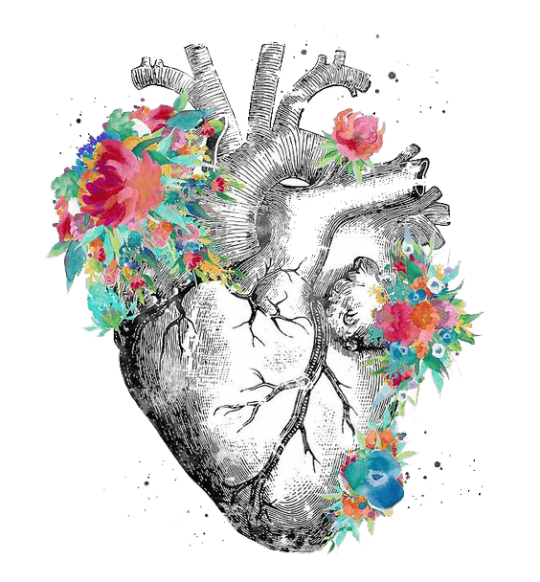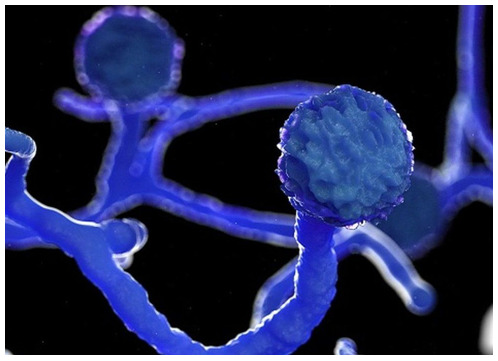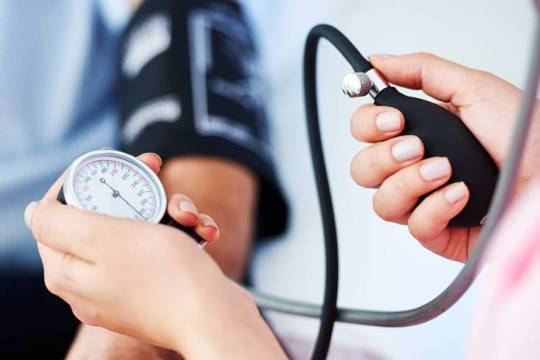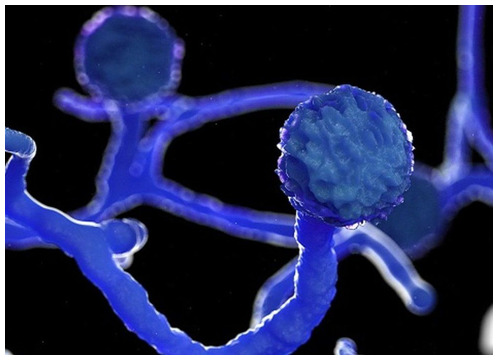#bestcardiologistinpune
Text
What You Need To Know About Coronary Angiography

What is Coronary Angiography?
Coronary angiography is a diagnostic test that uses X-ray technology and a contrast dye to create detailed images of the coronary arteries, which supply blood to the heart muscle. The test helps doctors to diagnose and evaluate the severity of narrowed or blocked coronary arteries, which can cause chest pain, shortness of breath, and other symptoms of heart disease. The procedure is performed by threading a thin, flexible tube called a catheter through an artery, typically in the leg or arm, and up to the heart. The contrast dye is then injected through the catheter, and X-ray images are taken to visualize the blood flow in the coronary arteries. Coronary angiography can also be used to guide treatment procedures, such as angioplasty or stenting, to open blocked or narrowed coronary arterie.
Coronary angiography is typically an outpatient procedure that takes about 10 minutes to 15 minutes to complete. However, the total time spent at the hospital may be longer, as there is usually some preparation time and recovery time afterwards. The preparation time may include obtaining informed consent, an IV line insertion, and some blood work, and this can take 30 minutes to an hour. After the procedure, the patient will be monitored for about 4 hours in the recovery room or in the cardiac catheterization lab. So, the total time spent at the hospital can be around 6-8 hours. It is important to note that the time may vary depending on the individual case and the facility where the procedure is being performed.
What are the risks involved in doing coronary angiography?
Allergic reaction to the contrast dye used in the procedure
Bruising or bleeding at the puncture site
Blood clots in leg or wrist artery
Heart attack or stroke
Damage to the blood vessels or heart
Kidney damage
However, these risks are generally considered to be low, and the procedure is considered to be safe when performed by an experienced operator. It is important to discuss the risks and benefits of the procedure with your doctor to determine whether it is appropriate for you.
What is the cost of coronary angiography in India?
The cost of a coronary angiography procedure in India can vary depending on a number of factors such as the location, the hospital, and the type of procedure used. On average, the cost of a coronary angiography procedure in India can range from around 20,000 to 50,000 Indian Rupees. However, in some private hospitals, the cost could be higher. It is important to note that this cost may also vary depending on whether you have health insurance or not, and what type of coverage you have. It is always recommended that you check with your insurance company to see what your policy covers, and to get an estimate of the out-of-pocket costs you will be responsible for.
Dr. Rahul Sawant
MRCP. CCT Cardiology UK. FACC
CEO and founder Hridaymitra Cardia Clinic Pune.
He is one of the best cardiologist around and has highest success rate and lowest complication rate in performing cardiac procedures.
0 notes
Text
Best Cardiologist in Pune | Cardiologist in Pune - Dr. Rahul Sawant
Searching for Best Cardiologist in Pune ? Dr. Rahul Sawant is the Best Cardiologist in Pune he has over 15 years of experience with cardiology, he is available at Hridaymitra Cardia Clinic near you to book an appointment online.
0 notes
Text
Tips for Taking Accurate Blood Pressure Readings

Why should a blood pressure monitor be used?
Display: The numbers on the display should be visible and easy to read.
Size: Choosing the correct cuff size is crucial. The cuff size you need is determined by the length of your arm. You should seek assistance from a doctor, nurse, or pharmacist. If your cuff is the wrong size, your blood pressure levels can be inaccurate.

How can I get an accurate reading of my blood pressure?
Wait 30 minutes after eating, drinking, smoking, or exercising after consuming caffeine, alcohol, or tobacco products.
Before you start taking your blood pressure medication, keep an eye on your blood pressure.
Go to the bathroom and relieve yourself.
While monitoring your Blood Pressure Keep the following things in mind:
Start the BP monitor according to the instructions on the machine.
Make sure the band is properly wrapped around the forearm.
Lift your arm to the level of your heart and rest it there. Place it on a table or the arm of a chair.
Allow your palms to be loose.
Sit up straight and take a deep breath.
Do not place one leg on top of the other.
Maintain a flat foot on the ground.
Monitoring Your BP:
Do not talk while monitoring your blood pressure.
Start the machine by pressing the Start button.
The monitor will show your systolic and diastolic blood pressure readings.
Make a note of your readings according to the date.
After 1 minute, repeat the reading.
Check your blood pressure twice before dinner.
Before you go to the hospital, keep track of your blood pressure for a week.
Show your doctor the results of your home test.
Dr. Rahul Patil – The best cardiologist in Pune, India is completely aware of the facts that high blood pressure has serious effects on the heart, so it is extremely important for a cardiac patient to maintain his blood pressure and monitor it on a regular basis. The above information will help the patient to check his blood pressure at the convenience of his home and that too accurately.
#bestcardiologistinpune#bestcardiologistinindia whoisthebestcardiologistinindia drrahulpatil cardiologistinindia
0 notes
Photo

Coronary artery disease is the narrowing or blockage of the coronary arteries. Coronary artery disease can range from no symptoms, to chest pain, to a heart attack.
#CoronaryArteryDisease#Symptoms#Prevention#Causes#BestCardiologistInPune#DrRahulPatil#HridayamHeartCareClinic#HridayamESMRCentre
0 notes
Photo

Suffering from heart disease & looking for the Best cardiologist in Pune, Star hospital is one of the best hospitals for cardiology or hear treatment in Pune, we have top cardiologists doctor gives you a full range of cardiology treatment at an affordable price
0 notes
Link
The department of cardiology and cardiac surgery was set up at Sahyadri Hospitals in January 2005 with the purpose of providing excellent cardiac care at affordable cost to patients. At Sahyadri, we offer the full range of cardiology services, from early disease detection to complex interventions. This well equipped department has state-of-the-art equipments for battling against various cardiac diseases.
#cardiology#Cardiologist#heart#BestCardiologistinPune#CardiologistinPune#PaediatricCardiologistInPune#HeartClinicInPune BestHeartClinicInPune#Best Cardiologist in Pune
0 notes
Text
Best Cardiologist in Pune | Cardiac Clinic in Pune - Dr. Rahul Sawant

Dr. Rahul Sawant is one of the Best Cardiologist in Pune. He is Interventional Cardiologist, MBBS, MD (Med) Pune, MRCP London, CCT Cardiology Cambridge UK. He is Director of Hridaymitra Cardia Clinic, Pune.
Hridaymitra Cardia Clinic of excellence in Pune for heart care and you will discover well trained, and topmost best cardiologist in Pune. He is affiliated with various corporate hospitals in Pune including Noble Hospital, Deenanath Mangeshkar Hospital, Sahyadri Hospital, N M Wadia hospital. Dr. Sawant is an associate professor of Cardiology at Bharati Vidyapeeth’s Medical College and Hospital, Pune. He is a well-known heart specialist in Pune. He has rich experience with cardiology procedures and has performed around in excess of 5000 angiographies and in excess of 3,000 angioplasties.
#BestCardiologistinPune#Interventional Cardiologist in Pune - Dr. Rahul. D. Sawant#cardiologistinpune
0 notes
Text
Mucormycosis (Black Fungus) And COVID 19.

Catastrophic second wave of COVID 19 has left millions of people infected and dead. India is experiencing the world’s worst outbreak with not only rising COVID cases but also an alarming upsurge in a rare and potentially life-threatening fungal infection, Mucormycosis.
What is Mucormycosis?
According to CDC, Mucormycosis (black fungus) is a serious and rare fungal infection caused by a group of molds called mucormycetes. These fungi live in the environment, particularly in soil and in decaying organic matter, such as fruits, vegetables, leaves, compost piles, or rotten wood.People can contract mucormycosis by coming in contact with the fungal spores in the environment. For example, by inhalation of spores, by swallowing spores. Additionally, mucormycosisis likely to develop on the skin when fungus enters the skin via scrape, cut, burn, or any other type of skin trauma or injury.
How is mucormycosis related to COVID 19?
This rare fungal infection usually affects people who suffer from long-term health issues and/or take medications that lower immunity. Mucormyosis can be life-threatening in diabetics and immunocompromised individuals, such as recipients of organ or stem transplants, long-term usage of steroids, post-surgery, and cancer.
When diabetes is poorly controlled, and blood sugar is high the tissues become relatively acidic, it creates a suitable condition for Mucorales fungi to grow. This has been identified as a risk factor for mucormycosis in India. People with diabetes and obesity are expected to develop more severe Covid-19 infections. This means they’re more likely to receive corticosteroids, which are frequently used to treat Covid-19. But corticosteroids together with diabetes increase the risk of mucormycosis. Meanwhile, coronavirus can damage airway tissue and blood vessels, which could also increase susceptibility to fungal infection.
Moreover, damaged lungs and suppressed immune system as seen in the case of COVID-positive patients make sinuses and nose the most common site of mucormycosis manifestation. From there it can spread to the eyes, leading to blindness, or the brain, causing headaches, seizures, stroke, and even death in certain cases. A recent study showed 94% of people infected with mucormycosis had diabetes and poorly controlled diabetes in 67% people.
Furthermore, long-term ventilation reduces immunity and there are speculations of the fungus being transmitted by the humidifier water being given along with oxygen.
Is it contagious?
No, it’s not. It does not spread from one person to another.
Image: Twitter/@drharshvardhan
What are the symptoms?
You must visit your doctor if you experience the following symptoms;
Cough
Shortness of breath
fever
headache
nasal congestion, discharge.
sinus pain
blackened skin tissue
blisters
redness and swelling
ulcers
one side facial pain
loosening of teeth
blackish discoloration over the bridge of the nose
How is mucormycosis treated?
This includes antifungal medication, controlling blood sugar, urgent removal of dead tissue.
The outcome is poor in many patients affected with mucormyosis. Nearly half of the patients affected will die and many will sustain permanent damage to their health.
Can we prevent mucormycosis?
Yes, mucormycosis can be prevented. Vaccination can help, it will protect from infection, which in turn will protect immunity. A strong immunity system can keep mucrmycosis at bay. Awareness must be created regarding fungal infections, diagnose them early, along with a focus on controlling diabetes and using corticosteroids wisely.
Dr. Rahul Sawant is one of the Best Cardiologist in Pune. He is Interventional Cardiologist, MBBS, MD (Med) Pune, MRCP London, CCT Cardiology Cambridge UK. He is Director of Hridaymitra Cardia Clinic, Pune. Hridaymitra Cardia Clinic of excellence in Pune for heart care and you will discover well trained, and topmost best cardiologist in Pune.
0 notes
Text
What Is Heart Failure

Heart failure is a condition in which the heart is unable to pump enough blood to meet the body’s needs. It can be caused by a variety of factors, including coronary artery disease, high blood pressure, and diabetes. Symptoms of heart failure may include shortness of breath, fatigue, and swelling in the legs, ankles, and feet.
Treatment for heart failure may include medications to improve heart function, lifestyle changes, and in some cases, surgery. Lifestyle changes may include eating a healthy diet, exercising regularly, and managing stress. It is important for people with heart failure to work closely with their healthcare team to develop a treatment plan that is right for them.
Living with heart failure can be challenging, but there are steps that can be taken to manage the condition and improve quality of life. These may include:
Taking medications as prescribed
Monitoring symptoms and reporting any changes to a healthcare provider
Getting regular check-ups and following up with a healthcare provider as recommended
Making lifestyle changes, such as quitting smoking, eating a healthy diet, and exercising regularly
Managing stress and getting enough rest
It is also important for people with heart failure to be aware of the signs of worsening heart failure, which may include shortness of breath, fatigue, and swelling in the legs, ankles, and feet. If these symptoms occur, it is important to contact a healthcare provider right away.
Heart failure is a serious condition that requires ongoing management, but with the right treatment and lifestyle changes, people with heart failure can live long, active lives.
Article written by Best Cardiologist
Dr Rahul D Sawant
MRCP. CCT Cardiology UK
Interventional Cardiologist
0 notes
Text
Best Cardiologist in Pune | Cardiac Clinic in Pune - Dr. Rahul Sawant
Dr. Rahul Sawant is one of the Best Cardiologist in Pune. He has complete his, MBBS, MD (Med) Pune, MRCP London, CCT Cardiology Cambridge UK. He is Director of Hridaymitra Cardia Clinic Pune.
0 notes
Text
High Blood Pressure And COVID 19

If you suffer with high blood pressure, it’s a good idea to take extra care to protect yourself during the coronavirus (COVID-19) outbreak.
Hypertension damages arteries and increases workload of heart. Over time, this extra work can weaken your heart to the point where it can’t pump as much oxygen-rich blood to your body. Coronavirus can also damage the heart directly, which can be especially risky if your heart is already weakened by the effects of high blood pressure.
A weaker immune system is one reason people with high blood pressure and other health problems are at higher risk for coronavirus.
If you suffer from high BP continue taking your medication and keep your blood pressure in check.
Make sure you have enough medicine on hand to treat high blood pressure and other health conditions.
Stock up on over-the-counter medicines to treat a fever and other symptoms if you get sick.
Stay at home and limit contact with other people as much as you can.
Avoid crowds and anyone who looks sick.
Wash your hands often with soap and warm water.
Clean and disinfect all frequently touched surfaces like countertops and doorknobs.
We believe that patients with cardiac diseases, hypertension, or diabetes, who are treated with ACE2-increasing drugs, are probably at higher risk for severe COVID-19 infection, however, there is no strong evidence to suggest that. Learned bodies like European Society of Cardiology and American College of Cardiology have looked into these issues and currently do not recommend to change any prescriptions.
Note - Dr. Rahul Sawant is one of the Best Cardiologist in Pune for High Blood Pressure. He is Interventional Cardiologist, MBBS, MD (Med) Pune, MRCP London, CCT Cardiology Cambridge UK. He is Director of Hridaymitra Cardia Clinic, Pune. Hridaymitra Cardia Clinic of excellence in Pune for heart care and you will discover well trained, and topmost best cardiologist in Pune. He is affiliated with various corporate hospitals in Pune including Noble Hospital, Deenanath Mangeshkar Hospital, Sahyadri Hospital, N M Wadia hospital. Dr. Sawant is an associate professor of Cardiology at Bharati Vidyapeeth’s Medical College and Hospital, Pune. He is a well-known heart specialist in Pune. He has rich experience with cardiology procedures and has performed around in excess of 5000 angiographies and in excess of 3,000 angioplasties.
0 notes
Text
Mucormycosis (Black Fungus) And COVID 19.

Catastrophic second wave of COVID 19 has left millions of people infected and dead. India is experiencing the world’s worst outbreak with not only rising COVID cases but also an alarming upsurge in a rare and potentially life-threatening fungal infection, Mucormycosis.
What is Mucormycosis ?
According to CDC, Mucormycosis (black fungus) is a serious and rare fungal infection caused by a group of molds called mucormycetes. These fungi live in the environment, particularly in soil and in decaying organic matter, such as fruits, vegetables, leaves, compost piles, or rotten wood. People can contract mucormycosis by coming in contact with the fungal spores in the environment. For example, by inhalation of spores, by swallowing spores. Additionally, mucormycosisis likely to develop on the skin when fungus enters the skin via scrape, cut, burn, or any other type of skin trauma or injury.
How is mucormycosis related to COVID 19 ?
This rare fungal infection usually affects people who suffer from long-term health issues and/or take medications that lower immunity. Mucormyosis can be life-threatening in diabetics and immunocompromised individuals, such as recipients of organ or stem transplants, long-term usage of steroids, post-surgery, cancer.
When diabetes is poorly controlled, and blood sugar is high the tissues become relatively acidic, it creates a suitable condition for Mucorales fungi to grow. This has been identified as a risk factor for mucormycosis in India. People with diabetes and obesity are expected to develop more severe Covid-19 infections. This means they’re more likely to receive corticosteroids, which are frequently used to treat Covid-19. But corticosteroids together with diabetes increase the risk of mucormycosis. Meanwhile, coronavirus can damage airway tissue and blood vessels, which could also increase susceptibility to fungal infection.
Moreover, damaged lungs and suppressed immune system as seen in the case of COVID-positive patients make sinuses and nose the most common site of mucormycosis manifestation. From there it can spread to the eyes, leading to blindness, or the brain, causing headaches, seizures, stroke, and even death in certain cases. A recent study showed 94% of people infected with mucormycosis had diabetes and poorly controlled diabetes in 67% people.
Furthermore, long-term ventilation reduces immunity and there are speculations of the fungus being transmitted by the humidifier water being given along with oxygen.
Note - Dr. Rahul Sawant is one of the Best Cardiologist in Pune. He is Interventional Cardiologist, MBBS, MD (Med) Pune, MRCP London, CCT Cardiology Cambridge UK. He is Director of Hridaymitra Cardia Clinic, Pune. He has rich experience with cardiology procedures and has performed around in excess of 5000 angiographies and in excess of 3,000 angioplasties.
Is it contagious ?
No, it’s not. It does not spread from one person to another.

What are the symptoms ?
You must visit your doctor if you experience the following symptoms; Cough Shortness of breath fever headache nasal congestion, discharge. sinus pain blackened skin tissue blisters redness and swelling ulcers one side facial pain loosening of teeth blackish discoloration over the bridge of the nose
How is mucormycosis treated ?
This includes antifungal medication, controlling blood sugar, urgent removal of dead tissue. The outcome is poor in many patients affected with mucormyosis. Nearly half of the patients affected will die and many will sustain permanent damage to their health.
Can we prevent mucormycosis ?
Yes, mucormycosis can be prevented. Vaccination can help, it will protect from infection, which in turn will protect immunity. A strong immunity system can keep mucrmycosis at bay. Awareness must be created regarding fungal infections, diagnose them early, along with a focus on controlling diabetes and using corticosteroids wisely.
#bestcardiologistinpune#cardiologistinpune#interventionalcardiologistinpune#cardiacclinicinpune#heartclinicinpune
0 notes
Photo

Dr. Rahul Sawant is one of the Best Cardiologist in Pune. He is Interventional Cardiologist, MBBS, MD (Med) Pune, MRCP London, CCT Cardiology Cambridge UK. He is Director of Hridaymitra Cardia Clinic, Pune.
0 notes
Photo

Watch out 4 important steps for Healthy Heart.
#Heart#HealthyHeartTips#HeartHealth#HridayamESMRCentre#HridayamHeartCareClinic#BestCardiologistInPune#DrRahulPatil
0 notes
Photo

Did You Know ?
The Heart pumps oxygenated blood through the Aorta at about 1 Mile/ Hour.
#Heart#FactsAboutHeart#HeartTips#HealthyHeartTips#BestCardiologistInPune#DrRahulPatil#HridayamESMRCenter
0 notes